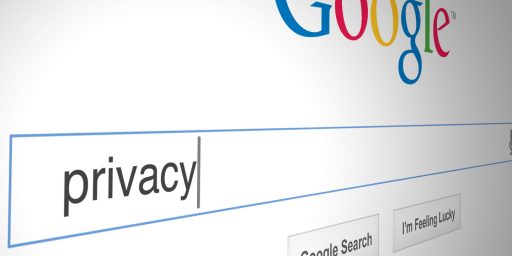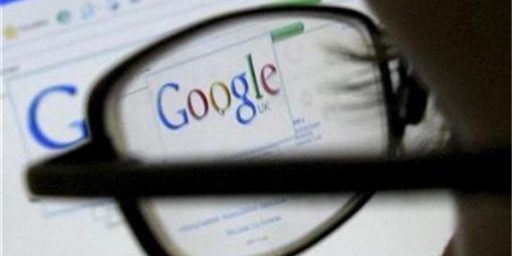Microsoft Seeks to Reinvent Search, May Destroy Web
The next generation search engine may not point to Web pages at all.
Microsoft is radically revamping its search engine, Bing. Their approach could destroy the Internet as we know it.
From the announcement, “Introducing the New Bing: Spend Less Time Searching, More Time Doing.”
Today we are taking a big step forward as we begin rolling out what is the most significant update to Bing since we launched three years ago. Over the coming weeks, we will be introducing a brand new way to search designed to help you take action and interact with friends and experts without compromising the core search experience.
First a little background. The search industry was built on keywords, links and labels – static nouns pointing to pages. This approach is great for finding sites but search is about more than simply finding information, it’s also about taking action. Whether it’s booking a flight, reading an article or buying a new pair of shoes, 68% of people tell us they expect to get something done when they type into a search box.
Now it’s possible to do more than find pages with search. You are able to share nearly everything you do, including where you are and who you are, in real-time. From rich multimedia content to real-time streams to social conversations to applications that let you take action in the real world, digital connections are created that present the opportunity to do something. This presents an unprecedented opportunity to rethink how search should work. Suddenly an index of documents that does not embrace these changes is insufficient.
At the same time, research tells us that 90% of people consult with a friend or expert before making a decision -whether it’s something as simple as which train will take you uptown or who is the best dentist in Boulder, other people are often the most trusted source of information. We value input from our friends and opinions from experts but at the same time want comprehensive, relevant and unbiased results. Recent attempts at social search haven’t unlocked the full potential of tapping our social networks. And the reason is pretty simple – social in search hasn’t mirrored how people do things in real life.
The fact is, search hasn’t kept pace. People have become as important as pages and search needs to evolve to embrace these changes. The challenge has been to figure out how to integrate the information you care about with the people who can be most helpful to you in getting stuff done.
So, essentially, they’re going to scrape people’s social network for clues to improve results. No big deal there; Google’s been doing it for quite some time.
What worries me, though, is the explanation from Fast Company’s E.B. Boyd (“Google, Alert: Bing Wants “To Model Every Object On The Planet,” Reinvent Search“).
Bing thinks search should be more about helping you get things done right in the search results themselves. In cases where they can reasonably predict what you’re trying to accomplish, search should provide widgets in the results that let you get the job done. For example, if you enter the keywords “The Avengers Chicago,” it’s reasonable to assume you’re looking for movie show times. Why not post a list of show times right in the results, instead of making you click over to a page of moving listings? (See: Bing to Lap Google in Making Search an App?)
But to provide that level of service, a simple list of pages on the Internet isn’t enough. You need a whole different kind of database on the back end. And that’s what Bing is working on creating.
“Our goal is to model every object on the planet,” Weitz says. So far the company has compiled a database of 300 million objects, from computer mice to buildings. As Bing’s bots crawl the web, they identify pages that have information about those objects. And then they use that information to develop an understanding of what kinds of things people might want to do with that object.
“We’re literally no longer indexing text,” Weitz says. “We’re trying to associate data that exists on the Web in all forms with the physical object that spawned it in the first place.”
The goal is to use the understandings they’re gathering, and the data they’re collecting, to identify and build the kinds of apps for search results that will help you accomplish tasks without making you click over to a second page.
Boyd sees the effects of this for a sidebar industry:
All of which is to say that a massive game change is waiting in the wings in the search business. And it won’t just affect the search competitors as they race to develop the most powerful models. It will also affect the SEO industry that has spent the past decade trying to master page rank. The more the search engines create apps to help people accomplish tasks right in the results, the fewer referrals they’ll be making to outside pages.
But I’d argue that it’s a game-changer for the Internet as we know it.
Now, as a search engine user, this sounds like a great idea: I want information and I want it quickly and efficiently. As a person who makes a living creating content for the Web, however, there’s another way of looking at it: Bing wants to take the content people like me create, repurpose it for their own use, while giving us nothing in return.
To be sure, curation, aggregation, and repurposing have been part and parcel of the Internet for some time. Certainly, I do it here; indeed, I’m doing it in this very post. But the currency of the Web has traditionally been the link. While I’m using some of Bing’s and Fast Company’s content without financial payment to them, I’m also acknowledging and linking it, increasing their search rankings and the likelihood of people reading their content on their pages. Some of you, who would otherwise have been completely unaware those two web pages existed, will even click over to them to get more information.
What’s happening is that search engines are starting to skip that step entirely. Bing is apparently going to take a huge leap forward but we’ve seen it already. Google has for a while been showing business addresses and phone numbers prominently in search results, presumably cutting down on clicks through to those businesses’ web sites. On the other hand, I’m guessing the businesses don’t mind, since those are likely actual customers intending to either call or visit their locations and being assisted in doing so.
Indeed, Boyd’s example is somewhat amusing, since a Google search for “Avengers movie times” will already display the showtimes from your local theaters without your needing to click through. That’s not the case with Bing thus far.
With these sites scraping the data from across the web while keeping the eyeballs on their own sites, what will be the incentive for content creators? The publishing industry has been struggling to monetize the Web for a decade now and mostly failing, since people expect to get content without paying for it, leaving advertising as the only viable business model except for a few niche sites. But it’ll get a whole lot tougher if the content simply appears on Google and Bing directly, without people having to even load the other site’s ads.







…or make the recommendation “Maybe you should stay in tonight, its going to rain.”
Remember the Siri limitations, they describe state of the art. Now, embedding Siri type functionality in search might provide some benefit / annoyance, but it won’t end the web.
I’m afraid I just don’t see this. Yes, the writing might be on the wall for all those sites looking to make fortunes by repackaging movie times, but that hardly seems like content creation on their part. Just how do you fear that Bing might repackage OTB?
Does anyone give a crap about Bing? Microsoft would be smart to focus on SharePoint, Office Suite and Exchange and get out of consumer facing products.
It’s a self-solving problem. If there is no incentive for the content creators, then it’s straight forward to configure their webservers to not respond when Bing’s spider shows up.
If anyone can destroy the Web it’s Microsoft.
Is it the new “old and crochety” to lament that search engines were better when they didn’t try to help the user so much?
@Kit: For people looking for long form essays, likely not so much. But a significant amount of search traffic is for people looking for a paragraph or two of information, not analysis.
@Stormy Dragon: That’s true up to a point. But search has also enabled the web. Websites that aren’t discoverable through search might as well not exist.
@anjin-san: I don’t know how it relates to their bottom line but Bing’s user base is huge. To be sure, Google is the 900 pound gorilla, with roughly 2/3 of all users. But Bing’s US market share is over 15%.
@James Joyner:
If Bing’s not linking to the sites anymore, as this article suggests, then they aren’t discoverable through search anyways. The can still participate with search engines that are actually helping users find their way to the site, but if they just want to take the data and run, there’s no cost in not helping.
A friend of mine has been saying “search is not done..” for almost 10 years. What MS is talking about as far as the direction search needs to go is correct. However, as to the MS implementation of the general idea, well, lets just see….
Google is in a box. Their ad network has created a huge incentive for people to game the results. Gaming the results makes their search less than optimal but the fixes to stop the gaming break the ad network. They cant move search forward with out killing their cash cow.
Google is ripe for disruption but I dont believe MS has the chops to do it. Facebook is not interested, they are playing another game, but they might do it just to throttle Googles cash cow. Amazon could do it but only if sells more Amazon stuff. Twitter has the hardware and the tech savvy dealing with large scale data sets to handle the problem but …..
Seems like this could be the next big thing. The cloud makes building out the system much cheaper than it every has been. It would not take too much to get started, probably less than 100k assuming everyone in your team could keep themselves housed and feed without a salary for 24 months or so.
Dag nabbit, if I was 20 years younger, well, honestly I would spend time drinking beer and chasing women like I did 20 years ago BUT if I was 20 years younger AND had my act together, this is what I would do.
I understand Bing 2.0 will not be content to just search for “Babysitter Porn,” it will actually give you a hand job.
This to me is a lot of talk from MS, but still quite vague. Like Jib said, I don’t think they have the chops to pull this off. Google maybe, but that would disrupt their business model and so they are out. We may as well be talking about microchips in humans “destroying” the internet. I see IP regulations doing more harm to the net than any of this.
I’d be worried if someone besides Microsoft were doing this. Microsoft is great at marketing. Creating new and useful things, not so much. Let me know when they buy a small company that has created this innovation, then I’ll worry.
Call me jaded, but I think this service will quickly gravitate to one that will recommend something it thinks it can sell you rather than something you want.
BTW, I think your wrong about this ruining the internet. You are anchored to the google search model but seriously, I dont think it is the majority of way traffic gets found on the net today. Yes, I know analytic’s will show that search is important but a lot of that is people being lazy. They already know about your site, they use google search to find it instead of bookmarks. In other words, they are not searching for ‘repubs vs dems’ or ‘conservative libertarians analyze Obama’ or whatever you guys think you are doing. They are looking for OTB specifically. They know your name and they enter it into google search for the link. If google goes away, they will still find you.
I dont get to OTB by running a search, I get here through links from other sites. That’s a social net model, not a search model. I think it is the current true state of most navigating, may well be the future, and it was definitely the past (remember web rings?). Search based nav may turn out to have been a temporary blip done in by trash sites rigging the search algos in order to loot google adwords. From heroic age to golden age to decadence in 10 short years.
The one place where search is still king is mobile geo-based search. Finding a biz close to where you are physically located using the GPS in your smart phone. This is real world customers using internet search to find real world bizs, not cyber customers browsing for internet sites on their laptops. We are doing a lot of biz right now setting up local companies to be mobile search friendly.
I think the ad based internet biz has peaked. The future of the internet is people who do real world services or sell real world goods and the internet is how their customers find them. The internet replaces the yellow pages and newspaper and radio and TV ads. It is how your customer will find you. You will get paid when they buy something from you.
Yes, I know, there is not much of a market for political commentary (and there will never be one). When the ad nets go, so will what little income you have from this site but I think you already know that. And the social net you have built up through this site should pay off nicely. Ultimately that is what the internet is about, not serving up ads but making your skills visible to a larger audience.
For better or worse…..